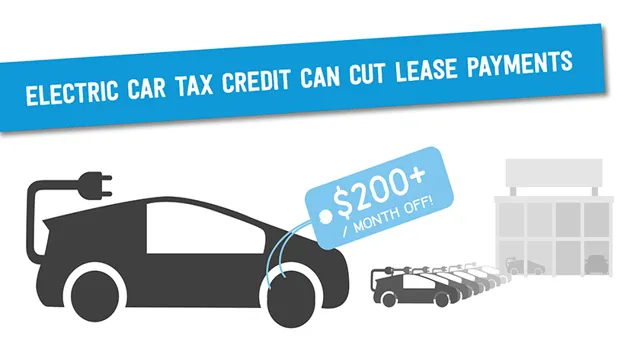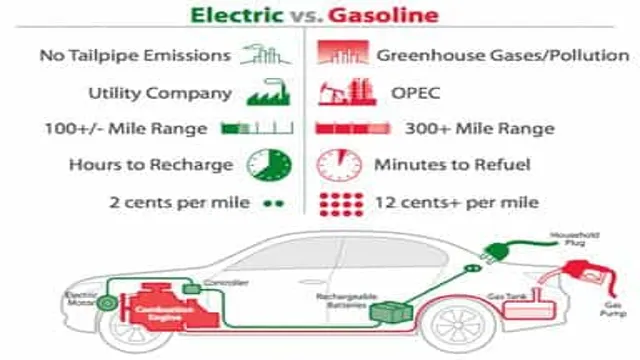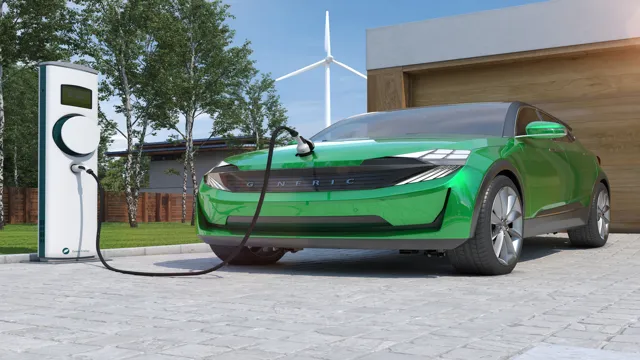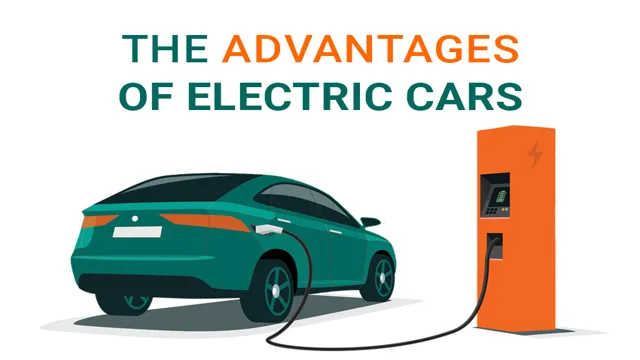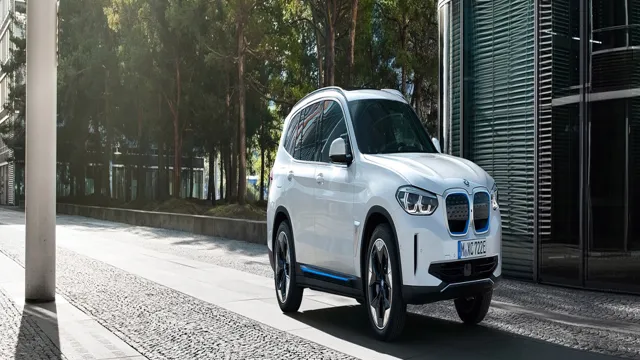10 Surprising Benefits of Owning an Electric Car That Will Change Your Mindset
Electric cars have been around for a while now, but it seems like they’re finally starting to gain some traction. With their environmentally-friendly nature and lower fuel costs, it’s easy to see why more and more people are switching from traditional gasoline-powered cars to electric vehicles. The benefits of electric cars are numerous, and they’re not just limited to the environment and your wallet.
In this blog post, we’ll dive into the many advantages of electric cars and why they may be the perfect choice for your next vehicle. So, buckle up and let’s get started!
Environmental Benefits
When it comes to the environment, electric cars offer a wealth of benefits. Firstly, they produce no emissions from their tailpipes, meaning they don’t contribute to the air pollution that plagues many urban areas. Additionally, electric cars can help reduce our reliance on fossil fuels, which are a finite resource.
Because electric cars can be powered by renewable sources of energy like wind and solar, they have the potential to be much more sustainable in the long term. Another environmental advantage of electric cars is that they are much quieter than traditional vehicles, which can help reduce noise pollution in communities. Overall, by driving an electric car, you can play an important role in protecting our planet for future generations.
Reduced Carbon Footprint
Reduced Carbon Footprint One of the greatest environmental benefits of reducing our carbon footprint is the positive impact it has on the planet. By reducing our carbon footprint, we are helping to combat the effects of climate change and protecting the environment for future generations. A reduced carbon footprint means a reduction in the amount of greenhouse gases we release into the atmosphere, which leads to a decrease in global temperature.
This reduction in temperature can help to prevent extreme weather conditions such as floods, droughts, and hurricanes. A reduced carbon footprint also means a reduction in the use of fossil fuels, which not only reduces our impact on the environment but also helps to promote cleaner air and water. Overall, reducing our carbon footprint is crucial for the long-term health of the planet and the preservation of our natural resources.
So, let’s do our part by reducing our carbon footprint through sustainable living practices and adopting eco-friendly measures, such as using renewable energy sources, reducing waste, and conserving water.
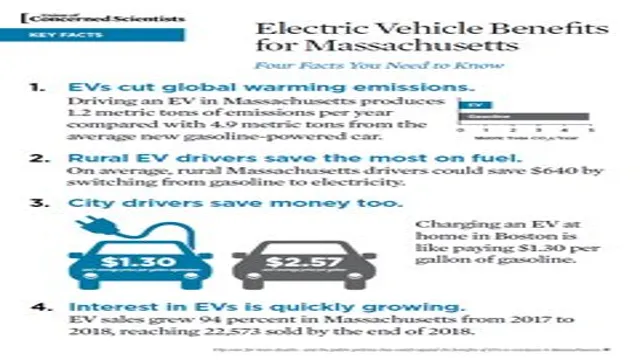
Improved Air Quality
Improved Air Quality is one of the most important environmental benefits that can result from people switching to eco-friendly practices and technologies. Poor air quality is a major issue in many urban areas, with pollutants like carbon monoxide, nitrogen oxides, and particulate matter causing harm to human health and the environment. By choosing to drive electric vehicles, using public transportation, or even walking or cycling instead of driving, people can significantly reduce the amount of harmful emissions they release into the atmosphere.
Additionally, using clean energy sources like wind and solar power can provide electricity without producing greenhouse gas emissions or other pollutants. This not only helps to improve air quality, but it also reduces our dependence on fossil fuels and helps to combat climate change. Small changes in everyday habits can make a big difference in the quality of our air and the health of our planet.
Cost Savings
Electric cars have numerous benefits, with one major advantage being the cost savings that come with owning one. Although electric cars may have a higher price tag compared to traditional cars, they are much cheaper to run in the long run. Electric cars require much less maintenance than their gas-guzzling counterparts, as there are fewer moving parts that need regular checkups or replacements.
Additionally, the cost of charging an electric car is usually significantly lower than the price of filling up a gas tank, resulting in substantial savings over time. Many governments also incentivize the purchase of electric cars through tax breaks and other financial benefits, which can further offset the initial purchase cost. In the end, switching to an electric car might be the best decision for your wallet, given the long-term savings that come with it.
Lower Fuel Costs
Lower Fuel Costs Lowering fuel costs can have a significant impact on a business’s bottom line. One way to achieve this is through the use of more efficient vehicles. By investing in fuel-efficient vehicles, companies can reduce their fuel expenses and improve their profitability.
Additionally, it’s important to consider alternative fuel options such as electric or hybrid vehicles, which can help lower fuel costs even further. Another effective strategy is to implement driver training programs that encourage safe and efficient driving habits. This not only saves on fuel costs but can also reduce wear and tear on vehicles and decrease the risk of accidents.
By adopting these cost-saving measures, businesses can enjoy a more sustainable approach to transportation while also improving their financial outlook.
Tax Credits and Rebates
When it comes to making energy-efficient upgrades to your home, cost is often a major concern. Fortunately, there are many tax credits and rebates available to help offset the expenses. These incentives can provide significant savings and make it more feasible to invest in energy-efficient improvements.
One of the most popular tax credits available is the Federal Energy Tax Credit, which provides homeowners with a tax credit of up to 10% of the cost of qualified energy-efficient improvements such as insulation, energy-efficient windows, and certain types of HVAC systems. Many state and local governments also offer their own incentives, including rebates and tax credits, to help homeowners make energy-efficient upgrades. Taking advantage of these programs can not only help you save money, but also reduce your carbon footprint and contribute to a more sustainable future for all.
Efficiency Advantages
When it comes to the benefits of electric cars, improved efficiency tops the list. Electric cars are much more efficient than traditional gas-powered vehicles. The reason behind this is that electric motors require less energy to complete the same task compared to an internal combustion engine.
In addition to this, electric vehicles have a regenerative braking system that captures energy from the car’s brakes and uses it to recharge the car’s battery. With these advantages, electric vehicles can offer better mileage, saving drivers money on fuel costs in the long run. Furthermore, electric cars have fewer moving parts compared to gas-powered cars which means less maintenance and repair costs over time.
Overall, electric cars put less stress on the environment while providing improved efficiency, making them a smart investment for anyone looking to save money and reduce their carbon footprint.
Less Maintenance Required
One of the biggest advantages of efficient technologies is the lower amount of maintenance required. When systems work more effectively, they experience less breakdowns, wear and tear, and other issues that require maintenance. This means that businesses can save a significant amount of money and time on repairs and upkeep.
Not only does this reduce expenses, but it also reduces the amount of downtime experienced by these companies when their equipment is out of commission. Additionally, efficient systems tend to be simpler and less complex, meaning that they are easier to diagnose and repair when issues do arise. Regular maintenance is still important, but with the efficiency improvements offered by modern technology, the frequency and intensity of this maintenance can be reduced.
Overall, investing in more efficient systems can offer significant benefits for companies looking to reduce their maintenance costs and improve their bottom line.
Quieter and Smoother Ride
One of the most significant advantages of electric vehicles (EVs) is their efficiency. Unlike gasoline-powered cars, EVs rely on electric motors to convert stored energy into motion. This process is much more efficient because it doesn’t waste energy through heat and friction.
As a result, EVs can travel farther on the same amount of energy, making them more cost-effective in the long run. Additionally, electric motors provide a quieter and smoother ride because they don’t have gears to shift. Instead, they offer instant torque, which means they can accelerate quickly and smoothly without the jerkiness of a traditional transmission.
This not only enhances the driving experience but also reduces noise pollution, making EVs a great option for urban environments. So, if you’re looking for an eco-friendly, cost-effective, and quiet mode of transportation, an electric vehicle might be the right choice for you.
Performance Improvements
One of the most significant benefits of electric cars is their impressive performance improvements. Electric vehicles offer instant torque, which means they have the ability to accelerate immediately without any hesitation. This quick acceleration results in faster, smoother driving and a smoother and quieter ride.
Additionally, because electric cars don’t require gear shifts like traditional gas-fueled engines, it is easier and faster to get up to higher speeds. This feature is particularly useful for city driving, as electric cars can quickly move through traffic and get ahead of congestion. Electric cars also have the benefit of regenerative braking systems, which captures energy during the braking process and recycles it back into the batteries, providing more efficient performance and reducing the need for frequent maintenance.
Overall, the benefits of electric cars offer impressive performance improvements, making them an attractive and practical choice for drivers looking for a smooth, efficient, and sustainable mode of transportation.
Instant Torque for Quick Acceleration
If you’re looking for quick acceleration in your vehicle, one of the most important factors is instant torque. This is because torque is what gives your car the initial power it needs to start moving. With instant torque, you get faster acceleration and a more thrilling driving experience.
Fortunately, there are ways to improve the performance of your vehicle and increase its torque output. Upgrading to a performance exhaust system or installing a cold air intake can help your engine breathe better and produce more power. You could also consider adding a performance chip to your car’s computer, which can optimize its fuel and ignition systems for maximum torque.
Whatever method you choose, just remember that instant torque is key to getting that quick burst of speed when you need it most on the road. So why not give your car the performance boost it deserves and experience the thrill of instant torque today?
Conclusion
In conclusion, electric cars offer many benefits that are hard to ignore. From reducing carbon emissions and saving money on fuel costs, to enjoying a smooth and quiet ride, these vehicles are setting a new standard for sustainable transportation. And let’s not forget about the added bonus of never having to visit another gas station again! So, why not make the switch to electric and join the movement towards a greener, cleaner future? Your wallet and the planet will thank you!”
FAQs
What are the benefits of owning an electric car?
Owning an electric car can save you money on fuel costs, reduce your carbon footprint, and provide a quieter and smoother driving experience.
Are electric cars better for the environment than gasoline cars?
Yes, electric cars produce zero emissions and have a lower overall carbon footprint than gasoline cars.
Do electric cars require more maintenance than gasoline cars?
No, electric cars typically require less maintenance than gasoline cars because they have fewer moving parts and do not require oil changes.
How long does it take to charge an electric car?
The time it takes to charge an electric car varies depending on the type of charger and the car’s battery capacity, but can range from a few hours to a full day.

